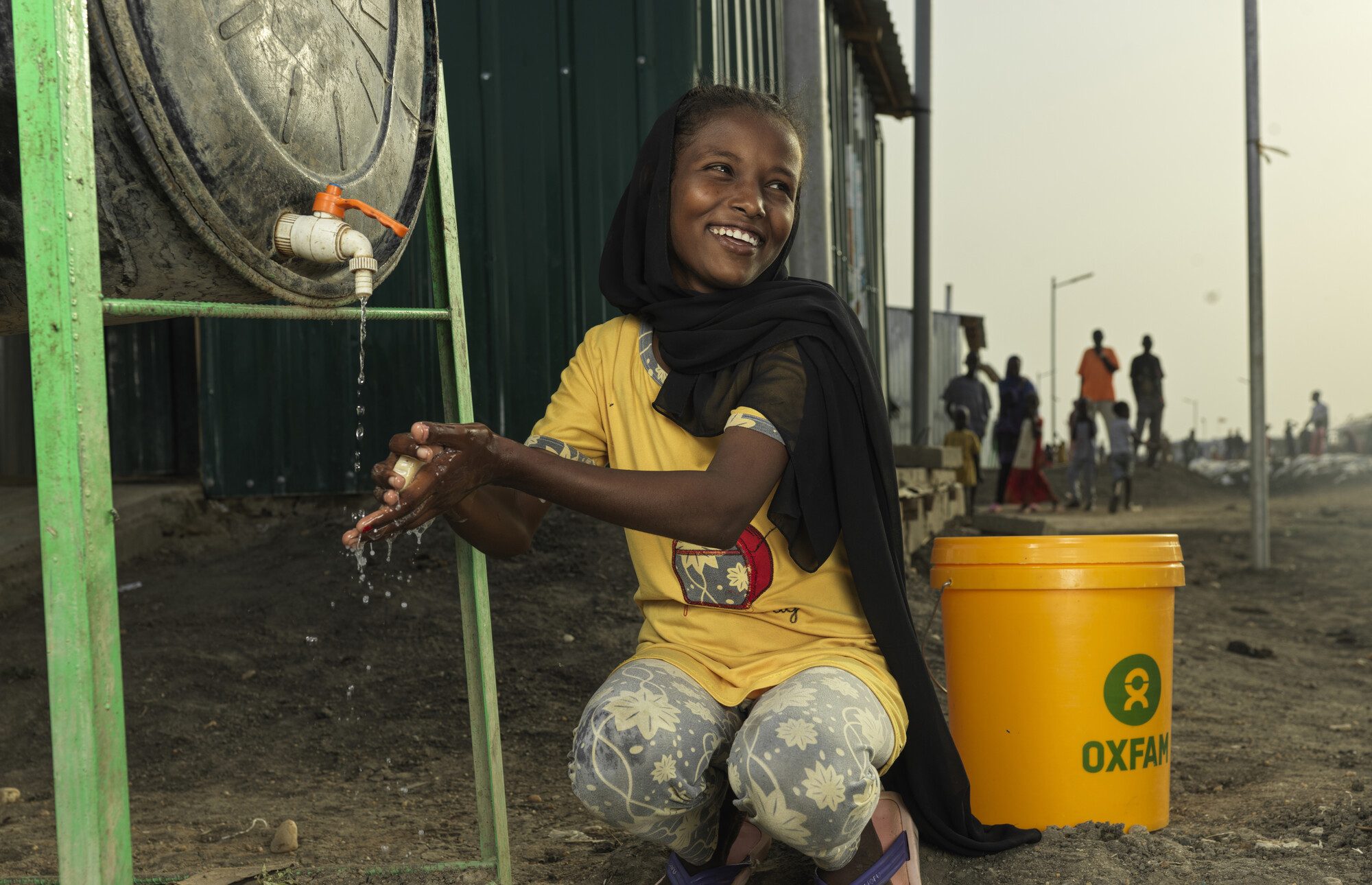Teaching someone to fish is the common mantra of good development. It’s a solid approach, aimed at providing long-term solutions to hunger and poverty. But while knowing how to fish can help fill hungry stomachs, it’s usually not enough to break the poverty cycle.
Great development, on the other hand, looks beyond initial needs and takes a creative approach to the big picture. I think a fish pond is the perfect example of creative development – it pushes the boundaries of what is possible.
The pond that keeps on giving
Souy Hoy lives with his brother’s family. He decided to not get married because of a disabling bullet wound he suffered during army service – he didn’t want to be a burden for a wife, even though he was not short of marriage requests.
Yet Hoy is far from a burden. He’s received training and support from Oxfam Australia to set up his own fish pond, and now he’s providing lots of food for his brother’s family and teaching other villagers about raising fish. Hoy explains to us the technique he now shares with others in his village:
“(After digging the pond), I have to scatter 10kg lime for 100 m2 of land. Then when the water is clear, we have to put fertiliser such as cow dung and some tree leaf to make the pond attract insects for fish to eat. Then we put the baby fish in the pond … we have to feed them properly and we should also put some coconut in the pond for fish to eat. We also have to think about the type of fish for raising. For the type of fish that I raise, I don’t have to spend a lot for feed because all the things I need I can find around my house, such as the tree leaf, bran and rice that is left over. Now that I have learnt these skills, I am teaching other villagers how to set up a fish pond so they can have fish too.”
Without any rivers or lakes nearby, the pond is an easy and sustainable source of protein-rich food for Hoy’s family. Just looking at Hoy’s pond, the movements and bubbles of fish are constant. Of course, we had to evaluate the quality of the pond – within minutes of casting a line we had a good-sized fish. This is exactly my kind of fishing. Meanwhile, Hoy tells us how the pond is invaluable for his family:
“I can sell some small fish to my neighbor and now I have 100,000 Riel (USD25) saved. Meanwhile, I can use fish for cooking when before I had to spend 5,000 Riel per day (USD1.25). I now save that money. The income is not only for me but for my family too.
“In the future, I will dig another pond in the farm for raising fish. Because of the fishery project, my family’s living is much better than before and I hope the extra fishery in the farm will give me even more result than before,” Hoy says.
Fish ponds are not the most revolutionary idea going around, but to me they show how development can expand the ideas of what is possible. Even better, it’s achievable on a very tight budget. Fish ponds may not be an Oxfam UnWrapped gift yet, but at about $60 to train 30 people and $15 for the initial 500 baby fish, it’s incredible value. I’m now left pondering what’s better than teaching a person to sustainably farm fish, who can then teach others?


